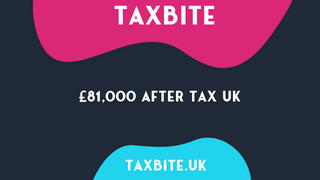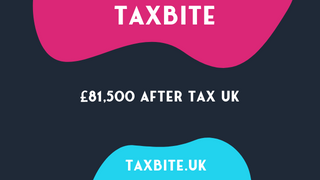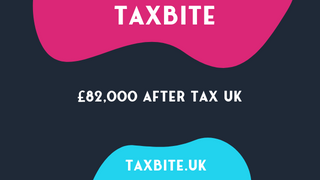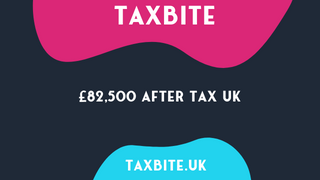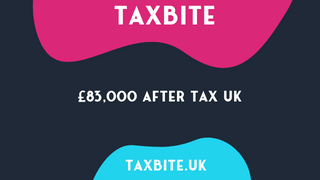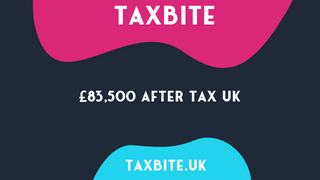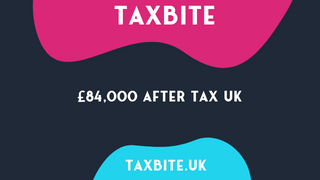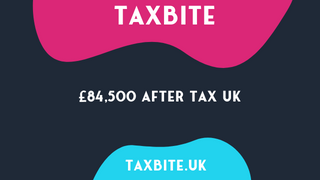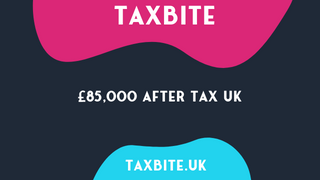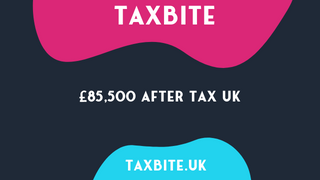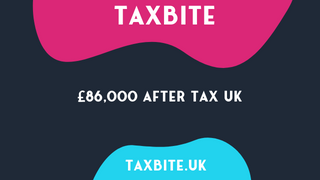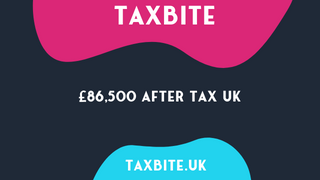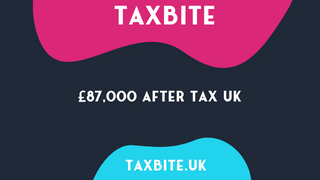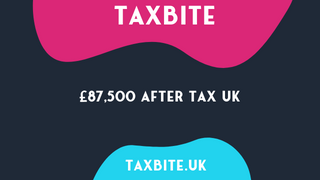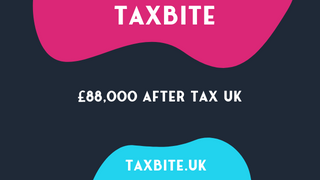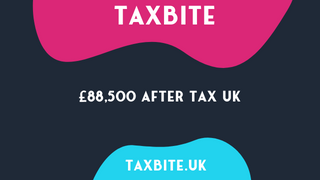Calculating taxes can be a complicated task, particularly for high earners such as those with an income of £81,000 in 2023. Let us delve into the details of the tax calculator. In this section, we will guide you on how to use the calculator to determine your net pay. Moreover, we will examine the tax breakdown across various regions of the UK, specifically England, Wales, Scotland, and Northern Ireland. Stay tuned for crucial figures and information that will aid you in navigating the intricate world of taxes.
Figuring out net pay with the tax calculator is a simple process if you have the right directions. The tax calculator considers different stuff such as income, taxes, and national insurance contributions to figure out the net pay you will get after deductions. To use the tax calculator to determine net pay, do this:
It is essential to remember that using the tax calculator to find out net pay gives an estimate, which can change based on individual conditions like pension contributions and benefits. To use the tax calculator to get the right net pay, make sure all info is correct and up-to-date. This will give you a more accurate calculation of your net pay.
UK residents across England, Wales, Scotland, and Northern Ireland have various tax rates. To find out the tax rate for someone earning £81,000, use a calculator.
We made a table to give an overview. It shows the personal allowance, income taxable at basic rate, income taxable at higher rate, additional rate, and total tax due.
| Personal Allowance | £12,570 |
| Basic Rate (20%) | £37,700 |
| Higher rate (40%) | £30,710 |
| Additional Rate (45%) | Over £150,000 |
| Total Tax Due: | £32,572 |
Also, National Insurance contributions apply. Someone earning £81,000 will pay £5,734 in these payments. To reduce deductions, explore extra ways to make money, like student loan repayments or benefits and pension schemes.
Pro Tip: Talk to a financial advisor or look online to learn more about the UK taxation system and find ways to increase your net income.
Are you curious about your net pay and tax rate if you earn £81,000 in the 2023/2024 tax year? Look no further. In this section, we’ll provide details on your net pay and tax rate, including marginal tax rate and National Insurance contributions. With this information, you’ll be well-informed about your financial situation for the upcoming tax year.
When it comes to taxes on an £81,000 income for 2023/2024, it’s important to know the marginal tax rate. This is the percentage for any extra pound earned over a certain threshold. It varies based on the individual’s UK tax residency. Factors like personal allowance and income levels affect this rate.
For someone residing in England or Wales and earning £81,000, the first £12,570 is tax-free. From £12,570 to £50,270, a 20% basic tax rate applies. £50,271 to £150,000 carries a 40% charge. Anything over £150,000 has a 45% levy.
National Insurance contributions can also influence the amount of tax taken from salary. It’s possible to use online calculators to estimate marginal tax rate for incomes and dividends over time. That way, people can make informed decisions and pay the right amount of tax.
National Insurance contributions are a major factor that affects UK residents’ net pay. They are essentially a tax paid to qualify for certain state benefits, such as the State Pension and Maternity Allowance. The amount you pay depends on your income, and is collected from earnings above the primary threshold.
Also, there is an upper earnings limit. Anyone earning more must pay National Insurance contributions on all their income, even if they have multiple jobs or are self-employed.
Above £50,000, you will need to pay an additional rate of National Insurance, called the Additional Rate. This is 2% on earnings above the £50,000 threshold.
Clearly, National Insurance contributions can have a great effect on net pay. Those who earn £81,000 and over, especially, can be affected strongly. So, it’s important to understand National Insurance and plan accordingly.
Being up-to-date on current tax policies and regulations means you can take steps to manage your finances properly and achieve your long-term goals. All in all, National Insurance contributions are very important for UK residents and should not be ignored when planning for the future.
If you are earning a salary of £81,000, it is important to understand your after-tax take-home pay as well as any necessary deductions. In this segment, we will discuss the impact of student loan repayments on your net income, along with other deductions such as National Insurance contributions and pension contributions. Understanding these crucial financial aspects will help you better manage your money and plan for the future.
Student loan repayments can affect net income a lot, particularly for people earning £81,000 a year. The amount depends on the loan type and when it was taken. For Plan 2 loans, repayments start when earnings exceed £27,295. And, 9% of earnings above that level is taken automatically.
It’s important to note that people with student loans may also have interest charges. This depends on when the loan was taken and if payments are up to date. It’s wise to check these details so you understand how they affect your take-home pay and long-term financial planning.
Gov.uk says those who took tuition fee loans before September 1st, 2012, get lower interest rates than those after this date. For later loans, the rate is based on inflation plus up to three percentage points, depending on salary. Keeping track of these interest rates is vital as they decide the cost of the loan and repayment plan. Knowing how student loan repayments and interest charges affect net income helps people to plan finances and stay on top of payments.
It’s vital to factor in other deductions when you’re calculating net income. These could be pension contributions, charitable donations, private medical insurance, or fees like child maintenance or union subscriptions. Even though this might lead to a lower net pay, it also brings advantages like financial security in retirement or private medical care.
Student loan repayments are another thing that can affect net income. Knowing how much is available to spend on wants vs. needs gives you control over your finances. Strategies like making the most of allowed contributions without getting penalized can result in quicker repayment and a better balance between discretionary spending and bills like mortgage repayments.
To sum up, understanding the effect of deductions on net income is key to managing finances and reaching financial targets.
Paying taxes and deductions is an inevitable reality for most of us. However, have you ever wondered how long it takes to pay off all these expenses? In this segment, we will explore the average time it takes to pay off taxes and other deductions. Furthermore, we will cover some ways to increase your net income and accelerate the process of paying off these expenses in case you plan to earn £81,000 or more after tax by 2023.
To work out how long it’ll take to pay off taxes and other deductions, several things must be considered. These include: net income, tax rate, national insurance contributions, student loan repayments, and other potential deductions.
Given the available facts, we estimate that someone earning £81,000 would take an average amount of time to pay their taxes and deductions. Here’s the estimated time for each type of deduction:
| Type of Deduction | Estimated Time to Pay Off |
|---|---|
| Tax | 10 months |
| National Insurance Contributions | 2 months |
| Student Loan Repayments | 4 years |
| Other Deductions | Varies |
Be aware that factors like individual circumstance and money management strategies can affect these estimates.
Besides regular earnings, you can also generate extra net income by investing in stocks or starting a side business. This could help speed up the process of paying off taxes and other deductions.
We obtained reference data on tax rates, national insurance contributions, and student loan repayments from England, Wales, Scotland, and Northern Ireland for the 2023/2024 tax year. This is reliable info for estimating how long it takes to pay off dues when you earn £81,000 per year.
If you make £81,000 a year, there are lots of ways to boost your cash flow. You could get freelance work, sell stuff online, or rent out rooms in your house. You can also benefit from tax-free allowances and pension contributions. During the pandemic, investing in stocks and shares can be a great way to supplement income while managing costs.
So, if you’re looking for ways to generate extra income to pay off deductions, consider these options. With some creativity, you can improve your financial situation and reduce debt stress.
After deducting taxes and National Insurance, your net income per year will be £55,178, which is equivalent to £4,598 per month. The tax paid per year will be £25,822, and the average tax rate is 31.9%, while the marginal tax rate is 43.3%. The calculator for this service is available for people in the United Kingdom.
Here’s a list of similar salaries:


